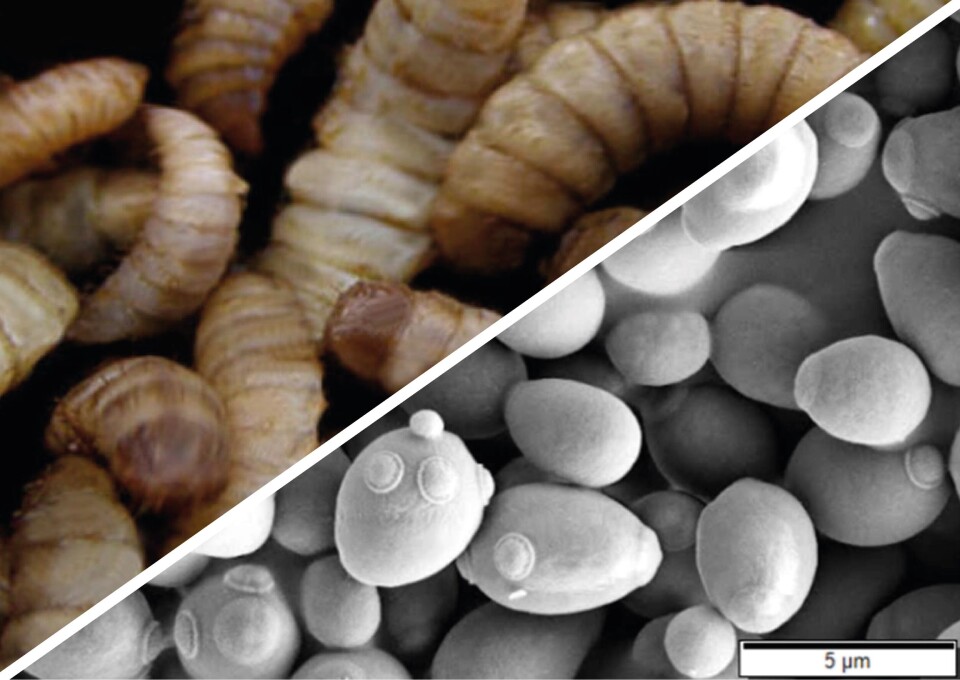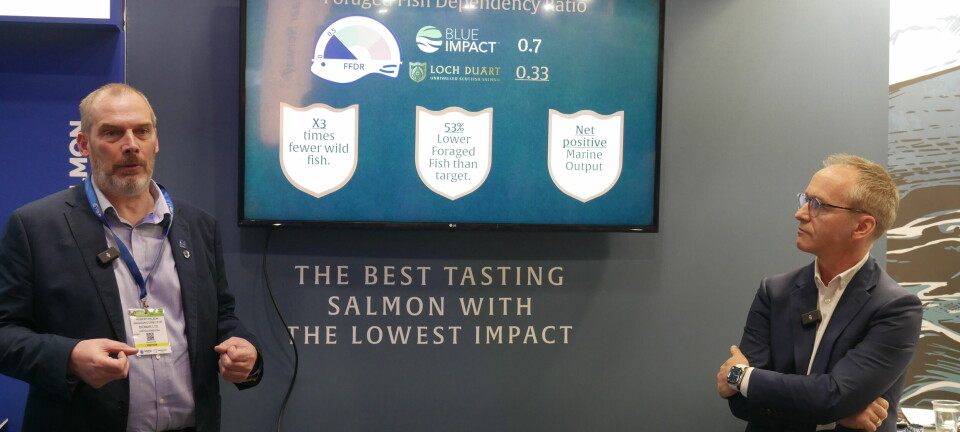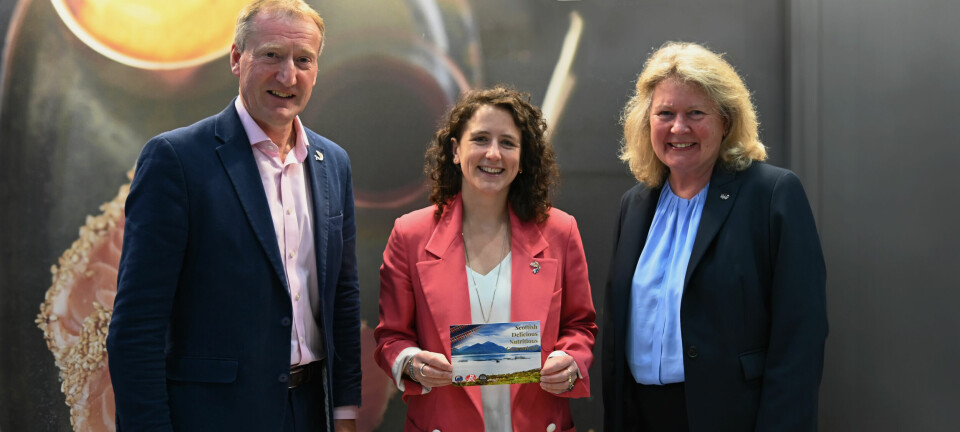
Insect and yeast protein could improve intestinal bacterial richness
A study carried out on rainbow trout showed that supplementing plant-based diets with protein derived from brewer’s yeast and black soldier fly larvae improved the richness of the intestinal microbiota without lowering resistance to the fish pathogen Flavobacterium psychrophilum.
Although different terrestrial plant proteins can replace fishmeal proteins, their use can be associated with adverse effects on the fish.
French researchers investigated how different diets composed of plant proteins supplemented with insect proteins, yeast or animal by-products, affect the composition of the intestinal microbiota of rainbow trout, growth performance and resistance to infection by F. psychrophilum.
Experimental diets
The control diet (T0) was composed of fishmeal and fish oil. The other three diets (Tv, F1 and F2) were composed of a mixture of proteins and vegetable oils, plus microalgae as a source of the omega-3 long-chain fatty acid DHA.
In diet F1, 11% of the vegetable proteins were replaced by 5.5% yeast protein (Saccharomyces cerevisiae) and 5.5% meal from insect larvae (Hermetia illucens). In diet F2, an additional 5.5% plant protein was replaced by the same amount of processed animal proteins.
“We confirmed that a diet composed entirely of plant ingredients (Tv) resulted in significantly reduced growth in fish. On the contrary, we demonstrated that the supplementation of a vegetable diet with insect and yeast proteins (F1 diet) restored growth performances similar to those obtained in fish fed a diet rich in fishmeal (T0),” the scientists wrote in the journal Animal Microbiome.
Phylum increases
Regarding the changes in the intestinal microbiota associated with the different protein sources, the researchers found that the fish fed the experimental diets F1 and F2 showed a significant increase in the abundance of the phylum Firmicutes and Tenericutes and a significant decrease in Proteobacteria, compared to the commercial control group (T0).
When comparing the F1 and F2 groups with the trout fed the Tv vegetable diet, they detected an increase in the phylum Actinobacteria in the fish fed with insect and yeast proteins.
“Although no significant differences in diversity were observed between the intestinal microbiota of the fish fed T0 and Tv, our results showed that both experimental diets F1 and F2 significantly increased intestinal bacterial richness compared to the control diets Tv and T0.”
Flavobacterium challenge
Finally, when challenging the same groups of fish with the pathogen F. psychrophilum by immersion, formulations F1 and F2 did not affect susceptibility to infection compared to the control diet.
In light of these results, the researchers concluded that “supplementation with a mixture of alternative proteins reduced the adverse effects of the plant-based diet on growth performance and increased the richness of the intestinal microbiota without affecting resistance to F. psychrophilum.
“These results open new perspectives to improve the efficiency of fish feed without fishmeal and contribute to the development of a more sustainable aquaculture.”




















































